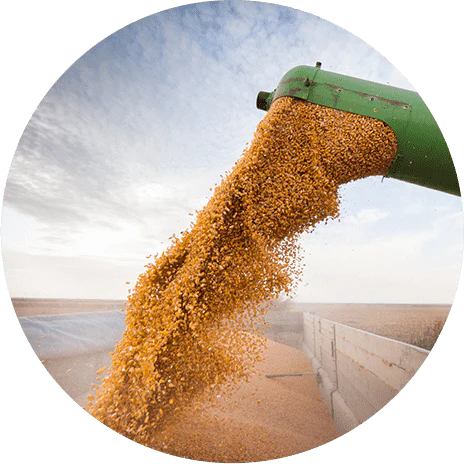
- When to plant:
- Spring, Fall
- Fertilizer:
- Varies
- Seeding rate:
- 120 - 150 lbs. per acre
- Overseeding rate:
- 60 - 120 lbs. per acre
- Seeding depth:
- 1/4 - 1/2 inch
- Ideal ph:
- 5.5 - 7.5
- Gmo:
- No
- Inoculant needed:
- No
- Coated or raw:
- Raw
- Lifecycle:
- Annual
- Climate zones:
- Cool Season, Transition Zone, Warm Season
Elbon Rye Grain is a type of cereal rye. It is best adapted to the Southern and Central United States. It was developed and released from the Oklahoma Agricultural Station. Elbon Rye has excellent winter forage production and early maturity. It has large, soft stems and upright growth habit. The forage has high moisture content, produces plants which have more winter growth, are more erect, and are approximately two weeks earlier than Wrens Abruzzi Grain Rye. Elbon Rye is winter hardy and will grow rapidly during the warm periods in the cold winter months. Late freezes may injure the plant but it will usually recover and produce a seed crop. This variety was basically developed for high forage yield allowing grazing late fall thru early spring.
Product Information
- Application or Use: Cattle Forage, Livestock Grazing, Cover Crop, Erosion Control, Hay Production
- Germination Time: 5 - 7 days, under optimal conditions
- Growing Locations: Warm Season, Transition Zone, Cool Season
- Height: 4 - 5 feet
- Sunlight Requirements: 4+ hours, full sun for best results
- Advantages: Cereal rye that has excellent winter forage production and early maturity.
- When to Plant: Recommended planting time is fall when night time temperatures are consistently below 65 degrees.
*Product packaging may appear different than what is pictured.
Plant this seed in the fall for best results. Sow this seed at a rate of 120 - 150 lbs per acre and at a depth of 1/4 - 1/2 inch. Elbon Rye prefers a pH of 5.5 - 7.5.
For best results, please review our Planting Guide and the specific product description before planting. Each product has recommended planting methods, timing, and seeding rates that are important for successful establishment. Following these guidelines will help ensure optimal performance and stand success.

Seed Quality
Hancock Seed is dedicated to delivering the best seeds possible to our customers. Hancock Seed grows and harvests many of our products, and we acquire the majority of the rest from other family farmers.
All these seeds are processed, packaged and shipped from Hancock Farm. This helps us ensure that our high standards are met. Unlike much of the competition, we refuse to sell you a seed that was not gathered during the last harvest. You will always receive fresh product from Hancock.
Every seed we grow comes with 40 years of experience behind it...you can rest assured that all of our products are cultivated in a method that assures its potential for growth.

Your cart ( 0 )

Elbon Rye Grain is a type of cereal rye. It is best adapted to the Southern and Central United States. It was developed and released from the Oklahoma Agricultural Station. Elbon Rye has excellent winter forage production and early maturity. It has large, soft stems and upright growth habit. The forage has high moisture content, produces plants which have more winter growth, are more erect, and are approximately two weeks earlier than Wrens Abruzzi Grain Rye. Elbon Rye is winter hardy and will grow rapidly during the warm periods in the cold winter months. Late freezes may injure the plant but it will usually recover and produce a seed crop. This variety was basically developed for high forage yield allowing grazing late fall thru early spring.
Product Information
- Application or Use: Cattle Forage, Livestock Grazing, Cover Crop, Erosion Control, Hay Production
- Germination Time: 5 - 7 days, under optimal conditions
- Growing Locations: Warm Season, Transition Zone, Cool Season
- Height: 4 - 5 feet
- Sunlight Requirements: 4+ hours, full sun for best results
- Advantages: Cereal rye that has excellent winter forage production and early maturity.
- When to Plant: Recommended planting time is fall when night time temperatures are consistently below 65 degrees.
*Product packaging may appear different than what is pictured.
Plant this seed in the fall for best results. Sow this seed at a rate of 120 - 150 lbs per acre and at a depth of 1/4 - 1/2 inch. Elbon Rye prefers a pH of 5.5 - 7.5.
Instructions
For best results, please review our Planting Guide and the specific product description before planting. Each product has recommended planting methods, timing, and seeding rates that are important for successful establishment. Following these guidelines will help ensure optimal performance and stand success.
















